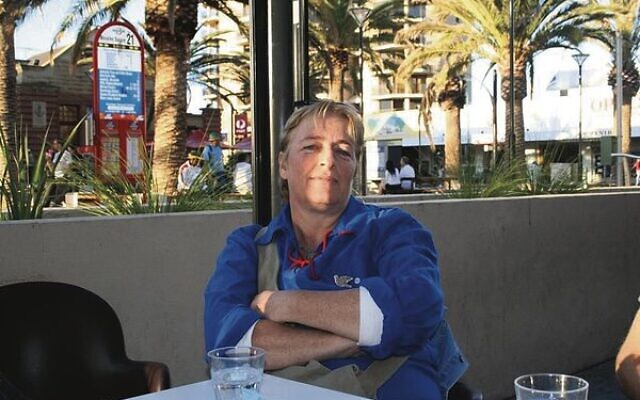‘We’re slowly bringing back the community’
'Some stories are terrible and some are stories of heroism – some people were heroes, saving their families.'
IN the early hours of October 7, when Shibolet Shofet-Edelman, a shlichah (emissary) with Australian links, heard the first reports of the Hamas attacks, she broke Shabbat, jumped into her car and headed south from her kibbutz at Kfar HaNikra near the Lebanon border.
She anxiously wore down the kilometres on her southward race towards Nahal Oz, where she is the kibbutz’s community manager. But before she could reach Tel Aviv, the headlines told of Hamas missiles raining down on the Gaza envelope, where Nahal Oz is located.
“So I stopped and I landed in my sister’s house in Kfar Sava. And there I was the whole day, listening and watching,” said Shibolet, who worked in Melbourne as a shlichah for Habonim Dror in the late 2000s.
The reports filtering in were horrific. “People were calling for help, people were devastated, they didn’t know what was going on. Where is the army? In every house, there were Hamas trying to grab them.”
Almost three weeks later, the terror lingers in her heart. “We just buried our 12th victim yesterday. And we still have seven people missing or kidnapped.”
Nahal Oz has been evacuated and its community has been relocated to a kibbutz further north, where Shibolet is trying to support and comfort stunned, grieving survivors. She is helping to secure food and clothing for a stream of refugees arriving homeless from Israel’s south.
“The immediate needs are being met. We’re providing each family a place to sleep here. A dining room in the kibbutz has been opened and all meals are being provided. They have clothes and toys, and we opened a school.
“There’s a psychologist, a psychiatrist, and there are social workers helping individuals and families. We’ve held a few gatherings to listen to people, to hear their stories. Some stories are terrible and some are stories of heroism – some people were heroes, saving their families. We’re slowly bringing back the community, starting to manage ourselves here.”
So what’s in the near future? “Who knows?” is all Shibolet can say. “The next few weeks, months – I don’t know how long it’s going to take. I think it’s too early. Some people are saying, ‘Nahal Oz is my home, I’m going back there as soon as I can.’ And some say, ‘I’m not going back there. I have a family to build again. I can’t be there anymore.’ I think a lot of people are not ready yet to decide definitely if they’re going back or not.
“It also has to do with how long you’ve been living at Nahal Oz. The people who built it 70 years ago don’t have another home. The minute they’re able to, they’ll go home. But other people, who came six, eight years ago, and some families we just brought in a few months ago – I’m not sure what they’ll decide – it’s too early to talk about it.”
Shibolet recalled her sojourn in Melbourne in 2007-08 as the time she discovered what it means to be a shlichah. “I was born and raised in a kibbutz in the 1960s and 1970s. We were taught that you need to be a shaliach, either in Israel or in your community. In that sense, I was a shlichah even before, but I grew into it when I first was a real shlichah in Australia.”
What are her memories of those two years in Australia? “It’s still very fresh because it was so meaningful. It was the first time in my life that I was working outside Israel, and the first time I was in a Jewish community that wasn’t a kibbutz.
“What struck me was the unconditional love and support for Israel. It didn’t matter if the government might have decided something that you, as an Australian Jew, didn’t agree with, you supported Israel. I learned from this that Israel was central to Jewish life around the world.”
Shibolet has a message for Jewish Australians. “I see everything you do. I see the support rallies. I talk to my friends in the Melbourne and Sydney community and all over Australia. It’s a horrible time for Jews in Israel and all around the world.
“But I have hope, because I see how we all give our voice. The day after the crying and the mourning will come, and we’ll build everything from scratch and we’ll be a better society. Because you support us from around the world, we are one. It’s important.”
For information on supporting the Nahal Oz community, visit https://bit.ly/Give_NahalOz


comments